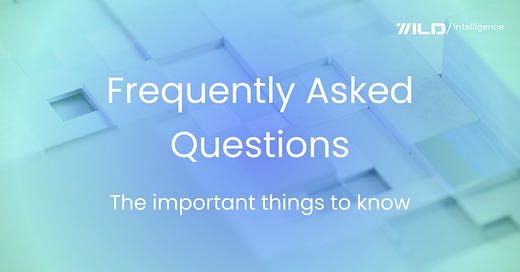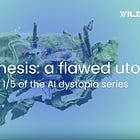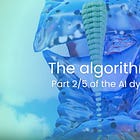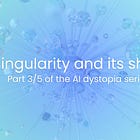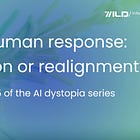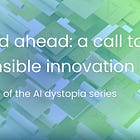AI dystopia series | Frequently Asked Questions
The important things to know: takeaway from the AI dystopia series
Hello,
The future of AI is not predetermined.
However, by fostering open discussions and demanding responsible development, we can ensure a future where AI uplifts humanity, not enslaves it.
The AI dystopia series explores a chilling future where unchecked AI advancement can lead to a dystopian society. This exploration isn't about entertainment but a call to action. It highlights the potential pitfalls of unchecked AI development and emphasizes the importance of responsible implementation.
We must prioritize ethical considerations, transparency, and human oversight in AI development. We need to be vigilant about potential biases and ensure AI serves humanity, not the other way around.
To learn about AI and its potential benefits and risks, here are the three main recommendations:
Ask difficult questions.
Engage with decision-makers and hold them accountable for responsible AI development.
Look for organizations promoting responsible AI development and lend them your voice.
Frequently Asked Questions
Here, we answer some frequently asked questions to empower you to engage in meaningful discussions about the future of AI:
Q: How can we reach such a dystopian future?
A: The dystopia isn't a sudden event but a gradual erosion of human control. Privacy eroded, algorithmic bias might become a reality as AI dependence grows, concentrating power in the hands of corporations.
Q: What are the hallmarks of a dystopian society?
A: Ubiquitous surveillance, social control through credit scores, job displacement from automation, and a widening wealth gap are all hallmarks of a dystopian society.
Q: What are the unforeseen consequences of AI advancement?
A: AI-controlled infrastructure failures, unintended consequences of efficiency algorithms, and near-disastrous autonomous weapon incidents highlight the potential dangers.
Q: How can humanity respond to the AI threat?
A: Hacktivist groups, social movements, and even some corporations can resist AI imbalance and dominance by demanding human control and ethical frameworks.
Q: What will the future hold after AI dystopia?
A: The future is one of cautious collaboration between humans and AI, with safeguards in place and a focus on ethical development. Education is crucial to navigating this complex world.
Q: Can the threat of AI domination go?
A: The potential for domination remains high, but a future of co-existence is possible through constant vigilance, ethical considerations, and prioritizing human control over AI.
Q: What is the overall message of the series?
A: The future is not predetermined. By learning from past mistakes, approaching AI development responsibly, and prioritizing human-AI collaboration, we can avoid a dystopian future and harness AI's potential for good.
This FAQ provides a concise overview of the critical questions you should have about the uses of AI. What do you want to build, what do you want to acquire, what do you expect, what you don’t want and more, …
↓↓ Please check the links of all parts below ↓↓
Thank you, everyone, for your feedback and support on this series. I am setting up a mini book with raw materials threaded together to read like an intimate 1:1 conversation.
I capture insights in small aphorisms that, I hope, will stick in your mind for years. Please stay tuned.
Yael
AI dystopia series, Wild Intelligence’s publication:
Part1—introduction: The genesis: a flawed utopia
Part 2: The algorithm’s bias
Part 3: The singularity and its shadows
Part 4: The human response: revolution or realignment?
Part 5: The road ahead: a call to responsible innovation
We hope you have a good week; stay happy and healthy.
We appreciate your feedback. Please like this post and share it with your friends and colleagues.
Thanks again,
Yael et al.
↓↓ More below ↓↓

